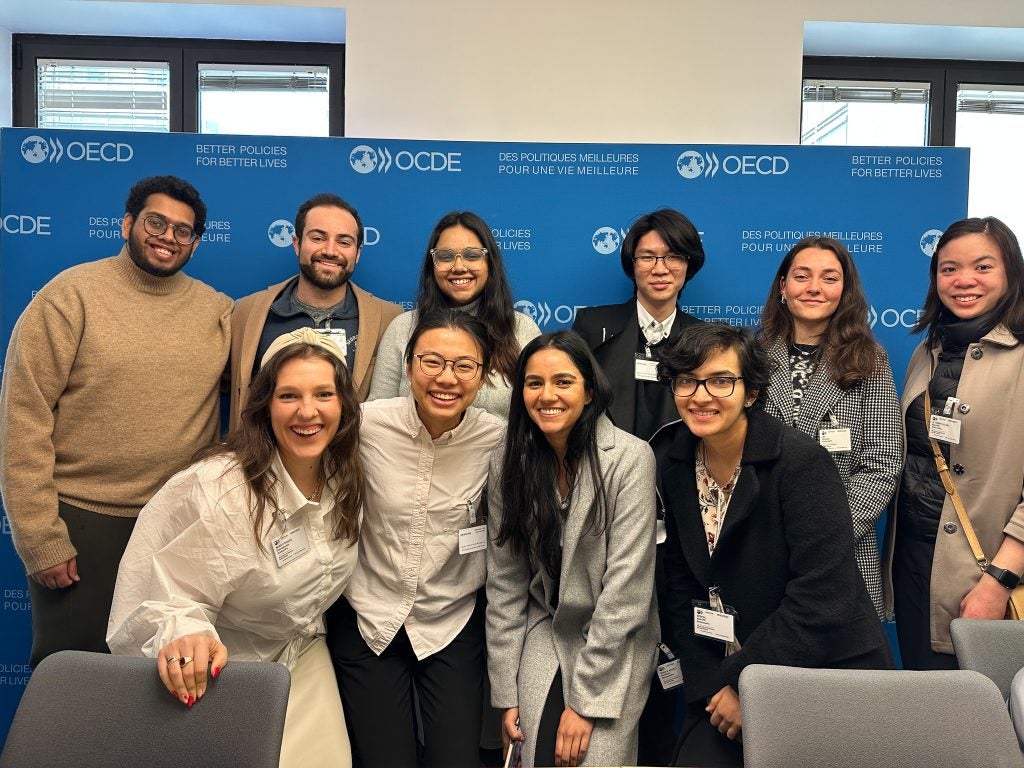Georgetown students present tech policy solutions in Paris
The McCourt School’s Tech & Public Policy program, in partnership with the Georgetown Technology Policy Initiative, hosted its inaugural Ideathon at Sciences Po University in Paris, where students piloted an interdisciplinary agile approach to forming tech policy solutions.

Ideathon participants in Paris
Seven Georgetown students spent their spring break participating in the McCourt School Tech & Public Policy program’s inaugural Ideathon at Sciences Po University in Paris. The Ideathon, co-sponsored by the Georgetown Technology Policy Initiative (GTPI), encourages students to take a novel approach to tech policy development by requiring them to work in an agile manner to solve small-scale tech policy issues.
In recent years, the European Union has enacted sweeping privacy reforms and is currently passing the Digital Services Act (DSA) and Digital Markets Act (DMA), which aim to create safer digital spaces where the fundamental rights of users are protected. Ideathon students from Georgetown had the unique opportunity to work through policy solutions in a region of the world that is practicing strict tech regulations while gaining a better understanding of the impact a lack of regulation can have on digital safety.
Georgetown’s Zach Ferry (CCT’25), Maria Giannopoulos (SCS’24), Shaila Sundram (MS-DSPP’23), Wanying Li (MPP’23), Dhriti Gupta (CCT’24), Mac Milin Kiran (CCT’24) and Alyanna Apacible (LLM’23), and Sciences Po students Deepal Khatri and James C. Purnomo worked together over the course of two days to identify the potential harm emoji misinformation could have on global audiences and to create a shared understanding of alternative emoji uses on social media. The group’s goal was to address and curb misinformation and criminal activity associated with emojis.
The Ideathon will always remain a highlight of my Georgetown experience as it helped me conceptualize and visualize my academic interests way before graduating. The experience also broadened my mindset and gave me new ideas to think about in terms of careers and research projects.”
Mac Milin Kiran (CCT’24)
The students presented their findings and policy recommendations, which included a user education plug-in and new approaches to content moderation, to researchers and experts in the field, to leaders in the tech policy space and received feedback on the real-world applications of their research. Throughout their time in Paris, the students had the opportunity to learn more about work that is currently being done in the field and how tech policy solutions are impacted by cultural and political factors.
To learn more about the McCourt School’s Tech & Public Policy program, visit our website or sign up for our newsletter .
- Tagged
- Tech & Public Policy
